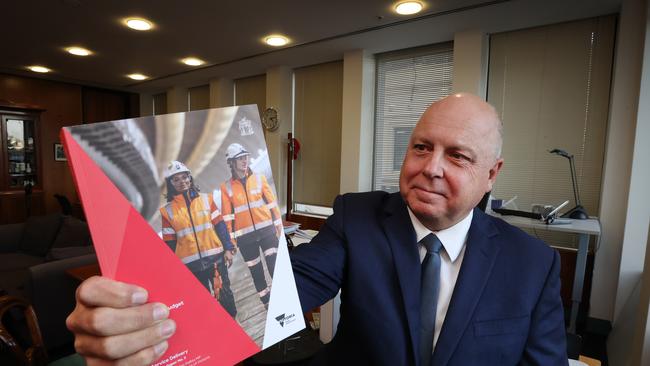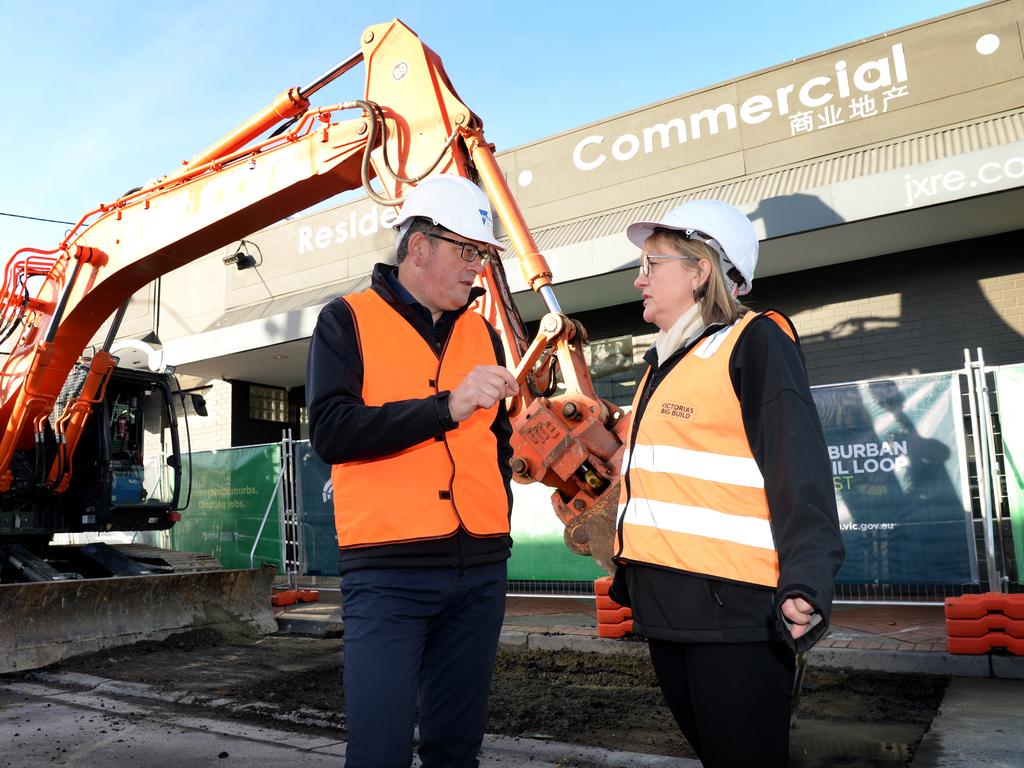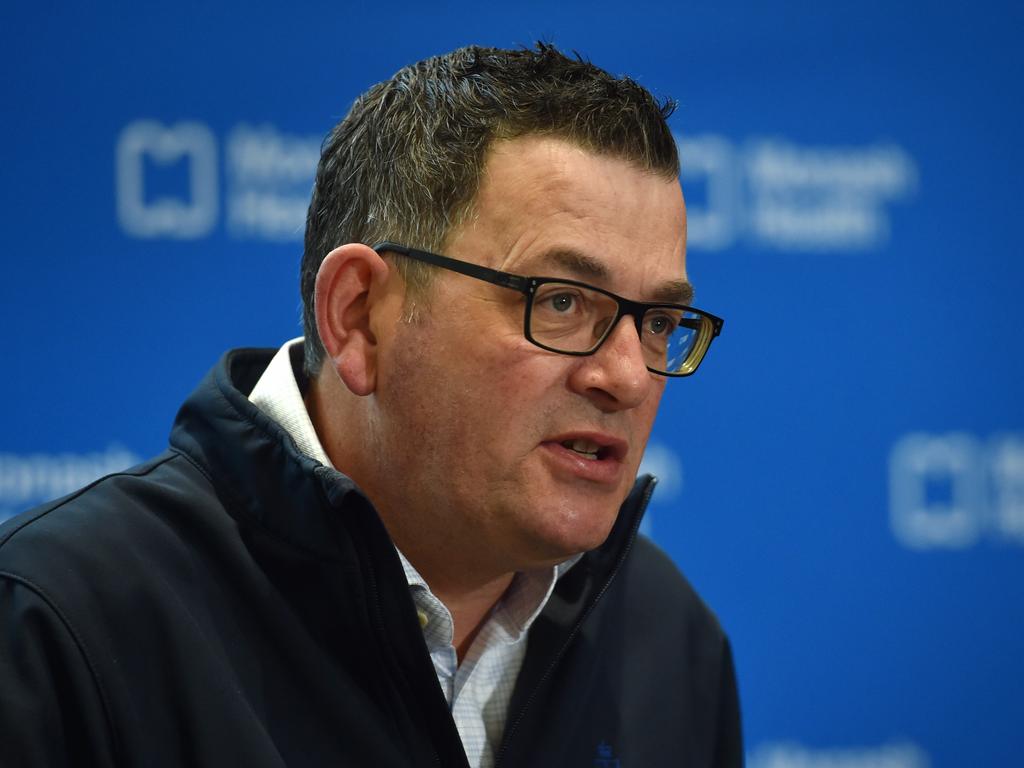Braced for tax rises and service cuts
Victorian Treasurer Tim Pallas will hand down the state’s ninth budget on Tuesday, which could include tax increases, service cuts and public service job losses.

Victorians are bracing for tax increases, service cuts and public service job losses as the Andrews government prepares to hand down its ninth state budget on Tuesday.
Treasurer Tim Pallas made himself available for a pre-budget photo opportunity on Monday but let Deputy Premier Jacinta Allan bat away questions about how the government planned to balance its books amid spiralling debt, soaring inflation and rising interest rates.
Ahead of confirmation from Mr Pallas late on Monday that the budget will deliver an operating surplus of $1bn in 2025-26 – $100m higher than forecast in the pre-election budget update last November and growing to $1.2bn in 2026-27 – Ms Allan claimed debt repayment measures would not affect “hardworking Victorian families”.
She refused to be drawn when asked about public sector job cuts, new taxes or levies, or 372 government programs worth $17.2bn – including road maintenance, domestic violence and disability support – which could be cut in Tuesday’s budget ahead of their funding expiring on June 30.
The government’s pre-election budget update in November showed Victoria headed for net debt levels of $116bn by the end of the current financial year, peaking at $165.9bn, or 24.6 per cent of gross state product, in 2025-26.
The state owed $21.8bn when Labor came to power in 2014, and Mr Pallas doubled the state’s debt ceiling to $60bn or 12 per cent of GSP ahead of the 2018 election to fund major infrastructure projects, with the 2019-20 state budget – prior to the Covid pandemic – putting Victoria on track for $54.9bn of net debt by the end of 2022-23.
As The Australian revealed last week, the Victorian Department of Treasury and Finance attributes $35.8bn to “coronavirus-related costs” over the 2019-20, 2020-21 and 2021-22 financial years, meaning Covid-related spending will account for less than a third of Victoria’s projected debt levels by the end of the current financial year, and just over a fifth of the $165.9bn of net debt the state is projected to reach by 2025-26.
Echoing Premier Daniel Andrews’s rhetoric in recent weeks, Ms Allan continued to blame the pandemic and advice from the Reserve Bank for Victoria’s escalating debt levels.
“There’s a job there to be done on addressing the Covid debt that we’ve accumulated during that one in 100 year pandemic,” she said, claiming Victoria had borrowed “at the urging of the RBA” and then federal treasurer Josh Frydenberg “to make sure that we used the strength of government balance sheets to support communities, to support businesses and critically to save lives”.
“We do recognise that the time has come to pay back that debt,” she said. “That will start from tomorrow when the Treasurer will outline his budget, but I do want to be really clear: this will not be something that will be affecting hardworking Victorian families who’ve already had enough with 11 interest rate rises in the past 12 months.
“They’ve already had enough. They’ve been doing it tough. We’ll be supporting them whilst we’ll be also working really hard on addressing those investments that were made during that pandemic, to support communities, to support businesses and save lives.”
Leading economists on Monday shot down the Andrews government’s attempt to blame the RBA, with AMP chief economist Shane Oliver telling the Herald Sun it was “disingenuous” for the Premier to “try to align himself with people with a mortgage”, and Corinna Economic Advisory principal Saul Eslake saying it was “dishonest”, given borrowing had been rising “quite significantly” before Covid.
Ms Allan deflected when asked to respond to the economists’ views, repeatedly stating that Victoria had been confronted by an “unprecedented one in 100 year event”.
Opposition Treasury spokesman Brad Rowswell said the budget would show that under Labor “Victoria is broke … life is getting harder, and … Victorians are being punished for decisions that this government has made”.
“Vulnerable Victorians, Victorians who can least afford to be impacted by decisions of this government, will be impacted tomorrow,” Mr Rowswell said.








To join the conversation, please log in. Don't have an account? Register
Join the conversation, you are commenting as Logout